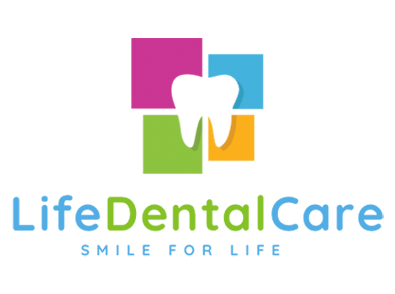Frequently Asked Questions
It's normal to have questions or concerns about your oral health and dental visits. That's why we have taken the time to answer your most frequently asked questions.
Why is visiting the dentist so important?
Routine dental examinations not only help to keep your teeth and mouth healthy, but they also help prevent gum disease and tooth decay. In addition, brushing and flossing your teeth combined with regular visits to the dentist can prevent bad breath, as it reduces the number of bacteria in your mouth.
How often should I see the dentist?
We recommend dental examinations and cleanings every 6 months for adults, teenagers and children. However, those with a greater risk of gum disease and oral cancer may need more regular visits. We will always inform you how often you should have a dental examination.
How do I schedule my next dentist appointment?
It's as simple as one click! Simply follow the booking link to schedule your next appointment with us. Our team is always happy to assist and make your dental experience as painless and convenient as possible.
What type of toothbrush should I use?
Toothbrushes with soft bristles are much better for your teeth, as medium and firm ones can damage your teeth and gums. Ensure you use gentle pressure for 2 minutes twice a day.
How often should I replace my toothbrush?
Replacing your toothbrush every 2-3 months and even sooner if the bristles are bent or splayed is essential. This is a possible sign that you may be brushing too hard.
What type of toothpaste should I use?
Most toothpaste will clear away bacteria growth and acids from food and drinks. However, we recommend toothpaste containing fluoride, which strengthens and protects teeth. If you experience sensitivity to cold or hot food or drinks, pick toothpaste for sensitive teeth.
Do I really need to floss?
Yes! Flossing helps clear food and bacteria stuck between the teeth and under the gum line. If you don't floss, plaque hardens into tartar or calculus, which forms wedges and widens the space between the teeth and gums, causing pockets. Over time, the gums pull away, and your teeth will loosen.
Does a rinse or mouthwash help?
You can use a mouthwash for fresh breath or protection from cavities, but this should be in addition to regular brushing and flossing - not instead of it. Kids under 6 should not use mouthwash to avoid the risk of swallowing.
Why do I need dental examinations?
Routine dental examinations help detect trouble early to prevent more extensive and costly treatments later. We also recommend having a scale and polish cleaning during your exam to remove any tartar or calculus build-up. You should schedule a routine examination every 6 months or more often if your dentist recommends it.
Are dental X-rays necessary and safe?
Dentists may recommend X-rays to diagnose dental problems or as an overall assessment tool during an examination. The advancements in dental technology mean that modern-day X-rays release much less radiation and are safer than before. Children typically undergo more X-rays than adults because their teeth change, and they tend to get cavities more easily.
Do teeth need fluoride?
Fluoride is a naturally-occurring mineral that helps strengthen the teeth and prevent decay. Everyone, including adults, will benefit from using fluoride to protect their teeth.
How do fillings work?
When cavities develop from tooth decay, they break through the surface enamel and get bigger unless you close them with a filling. To receive a filling, we numb your mouth before removing the dead tissue in and around the cavity to prep it. We then use a combination of strong materials or a white mix called composite to fill the cavity. Once set, fillings can last long but need replacing if they break or wear down.
What do sealants do?
Fissure sealants protect against cavities that can form in the natural tiny holes and cracks on the chewing surface of the teeth. Kids aged 6-12 will benefit from having sealants painted and hardened on their molars or back teeth. Adults can also get sealants to protect teeth that don't have fillings. These are painless and last between 6 months to 2 years.
What is the best way to whiten my teeth?
Professional in-chair teeth whitening is the safest and most effective way to whiten your teeth. While you can purchase whitening products and kits from stores and dentists, it is best to visit a dentist or oral hygienist skilled in teeth whitening for the best results.
How can I fix my teeth and smile?
At Life Dental Care, we offer various comprehensive cosmetic treatments to boost your smile. For example, dental crowns can cover problem teeth by surrounding them with a material that looks like a natural tooth. They are attached to the natural tooth using a special cement. Veneers and resin bonding can improve your smile by sticking a layer of smooth and white materials like porcelain or resin to the natural tooth. Clear aligners or braces can help improve the position of your teeth and enhance your smile.
What are the early signs of dental trouble?
We always aim to prevent dental issues, but if you start experiencing the following symptoms, contact your dentist for an appointment as soon as possible.
- Jaw pain
- Redness around the gums
- Sores in the mouth
- Swollen face or gums
- Dry mouth
- Tooth sensitivity
- Bleeding gums
- Broken teeth
- Bad breath or a bad taste in your mouth
Getting checked out right away prevents more serious problems and infections.

